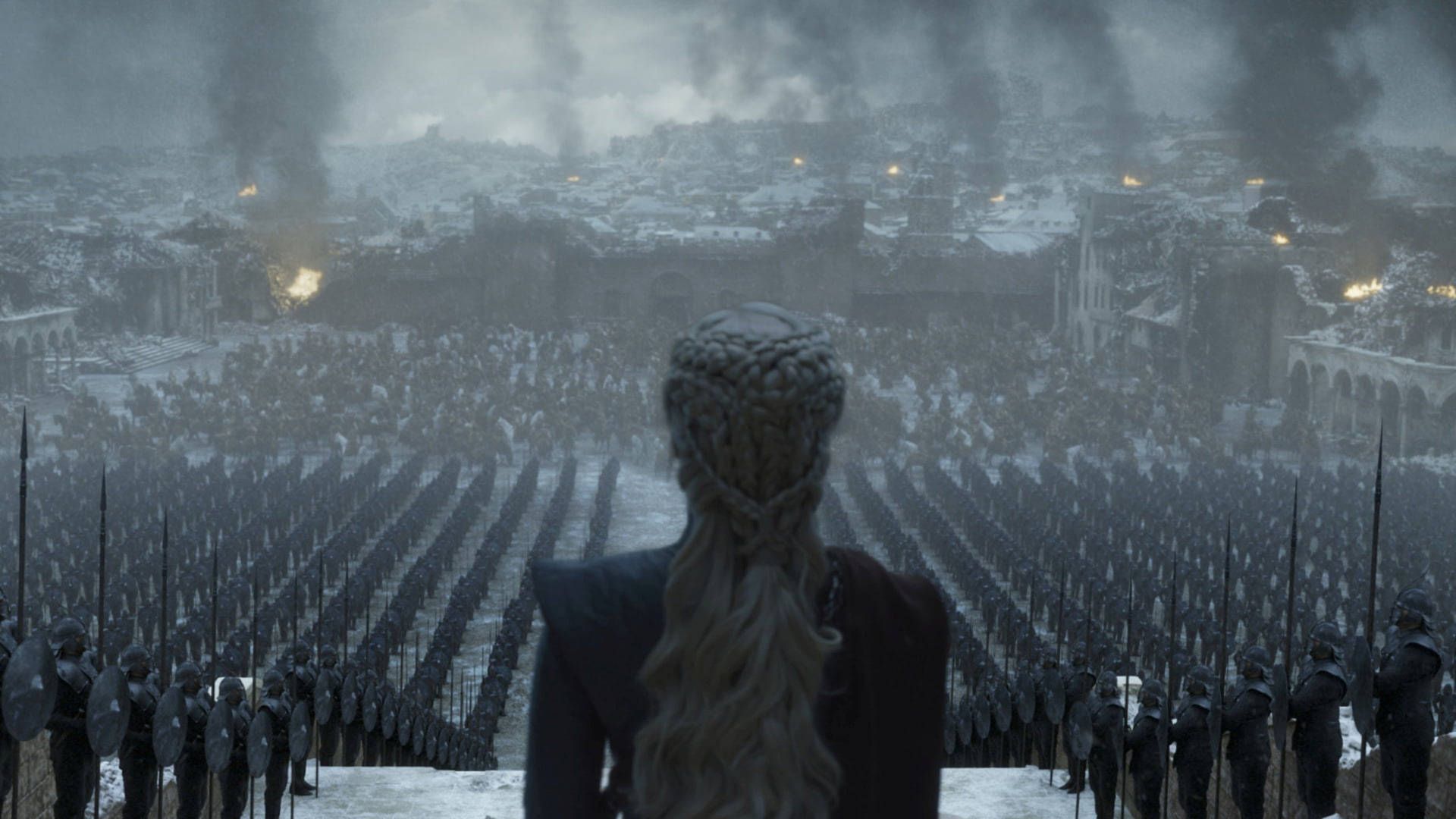
I can’t defend the choice to name Westeros’s version of ChatGPT as King. Contrary to Tyrion’s rationale, Bran’s is among the show’s least interesting stories, and the writers laid little narrative track leading to that ending. That he foresees his ascension changes the character and the show for the worse. I can, however, defend Dany’s turn. Her descent into madness was effectively plotted and foreshadowed across all eight seasons, so much so that, upon a rewatch, it seems inevitable. Audiences didn’t respond well to it, not because it didn’t make sense, but because they weren’t ready to accept it.
Daenerys Targaryen Was Always a Problematic Queen
Neither fans nor characters should have put their full faith in the Mother of Dragons. Famously, there’s a 50/50 chance of madness when it comes to Targaryens… a saying from the books which makes its way into the show. Whether Dany was going to be the hero or villain was always a coin flip, and since it was pretty clear that Jon Snow was the hero, we should’ve been able to do the math. We’ll get back to their doomed relationship later.
Martin and the showrunners use a classic storytelling tactic both to obscure Daenerys’s true nature and make her eventual fall from grace that much more tragic. She starts out vulnerable and innocent, and rises to become the most powerful force in the world. As far as she knows, her claim to the Throne is legitimate, and she’s easier to root for than Robert, Joffrey, Stannis, Tommen, and Cersei. As Tyrion laments to Jon in the finale, when she emerges from the flames unscathed and with three dragons, of course, she (and everyone else, including the audience) believes she’s destined for greatness.
As Tyrion explains with the wisdom of hindsight, most of them had it coming. Who could protest when she uses spectacular violence against the slave masters who conspire against her in Season 5 or the Dothraki who capture her in Season 6? But some of her allies become more concerned when she executes the Tarlys in Season 7 and Varys in Season 8. They seem to realize, to their horror, that she resorts to fire and blood whether or not her cause is just.
Her Story Had To End in Fire and Blood
Cruelty only accounts for half of Targaryen madness. The other half is that a mad Targaryen can’t be reasoned with. Daenerys had asked Varys to speak truth to her should she ever need to hear it. He tries, fails, and dies shortly thereafter as she utters a dispassionate and perfunctory “dracarys.” In what Tyrion perceives as betrayal, Varys confesses that he’s worried about her mental state and would prefer to see Jon on the Throne. His last words are that he hopes he’s wrong, but we know he wasn’t.
In stark (excuse the pun) contrast, even after he’s risen from the dead, Jon exhibits almost no self-importance aside from his vow to be the shield that guards the realms of men. He grows up thinking he’s a bastard and can’t imagine a future in which he’s Lord of Winterfell, let alone the rightful King of the Seven Kingdoms. As he accumulates power, he accepts it begrudgingly. Though he suffers as much betrayal and loss, he doesn’t lose his humanity.
Their brief romantic tryst aside, we should’ve seen Jon and Daenerys as foils the whole time. It’s called A Song of Ice and Fire after all, and most of the songs in Game of Thrones don’t have happy endings. When the truth about Jon/Aegon VI comes out, it’s obvious to everyone that he has the better claim and temperament. But Sansa correctly deduces that the few people who know this secret are afraid of their Queen. Despite the fact that Westeros might tolerate marriage between an aunt and nephew, no one actually thinks they’ll rule together.


